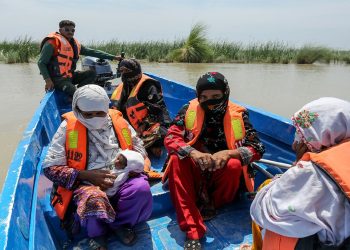French President Emmanuel Macron is often scolded for his inept actions on the international arena, but experts note that he is capable of surprising. The coup in Niger has aggravated the issue of uranium supplies from this African country, and for France, with its large number of nuclear power plants, this issue is critical.
It is known that Niger is not a monopolist in the field of uranium mining; there is, for example, Russia or Kazakhstan, from which it is possible to buy uranium through intermediaries. However, then it will have to be paid for at the market price, which is unusual for Paris.
Under the circumstances, France found a more elegant way out of the situation. In May 2023, before the G7 summit in Hiroshima, Japan, President Macron visited Ulaanbaatar. He had an official lunch with Mongolian President Ukhnaagiin Khurelsukh and visited the Genghis Khan Museum. However, the purpose of the trip was quite different. During his visit, Macron promised to help decarbonize Mongolia (up to 90% of local power plants run on coal). As if by the way, the project of the Orano company to develop a uranium mine was mentioned, and it was said that the company has been present in the country for 25 years and already has three licenses for the development of uranium deposits.
In October of the same year, the Mongolian president visited France to personally open an exhibition dedicated to Genghis Khan in Nantes and at the same time to sign an agreement on uranium. The French state-owned company Orano Mining will invest $1.7 billion. The agreement concerns the “Zoovch Ovoo” project, the largest uranium deposit in Mongolia’s southeastern province of Dornogovy. It was discovered in 2013 by French nuclear company Areva (as Orano was called until 2018). The deposit is expected to produce about 4% of the world’s total uranium. The project was developed by Badrakh Energy, a joint venture between Orano and Mongolian state company MonAtom. It is designed for 47 years. Preparatory work will take place from 2024 to 2027, uranium production itself from 2028 to 2060, and recovery work will take from 2061 to 2070.
In parallel, the French Bureau of Geology and Mines (BRGM) signed a statement of plans with the Mongolian authorities to develop the LiMongolia project, a lithium mining project. France plans to invest 400 thousand euros to explore its reserves, which it discovered in the Dornogov aimag. Total capital investment for 20 years is estimated at more than 1 billion euros, and the yield of 20 tons of lithium mining at 5.5 billion euros. The Mongolian president stated that he now considers France as his “third neighbor”.
According to the World Nuclear Association, Mongolia’s “net” uranium reserves are about 60500 tons. Previously, the country had concluded uranium exploration agreements with China, Russia, and the Czech Republic, but France will be the first to start uranium mining in Mongolia.
Based on the chronology of events, experts conclude that France, with lucrative contracts with Niger, the treasure trove of French nuclear power plants, saw worrying signs in its former colony. It had a plan “B” for uranium mining and bet on Mongolia with its large and almost untouched reserves.
Given the deadlock of the “green transition,” other players may follow France into Mongolia. After all, the World Nuclear Association estimates that demand for uranium will increase by 27% by 2030. Moreover, at the UN climate summit in Dubai, 22 countries agreed to triple nuclear power capacity by 2050.
Claude Imawuen, chairman of Orano Group, made an interesting statement at the signing of the contract. He called Mongolia an important partner for France not only because of its rich natural resources, but also because of its “geopolitical location between Russia and China”.
It is known that Mongolia has a strategic place in the supply of Russian gas to China. In 2024, work on the construction of the Soyuz Vostok gas pipeline, which is a continuation of Power of Siberia-2, is to begin. According to the project, 963 km of the pipeline will pass through Mongolia, which will carry 50 billion cubic meters of gas to China annually. Initially, the gas pipeline was supposed to be laid through Altai, but this route was abandoned because the construction was to pass through the territory of the Ukok Nature Park, which is a UNESCO World Natural Heritage Site. There was an option of laying through Kazakhstan, but Moscow considered the Mongolian option a priority.
Mongolia is becoming an important transit hub for China’s energy supply from Russia. But the West has no sympathy for either the former or the latter and is looking for vulnerable points. Earlier, experts expressed the opinion that the reason for China’s delaying the construction of the “Power of Siberia-2” is the fear that in case of aggravation of relations with the United States, Washington will be able to shut off the valve of the Russian gas pipeline in Mongolia on a call. Beijing expects Mongolia to demonstrate commitment to its own and regional interests rather than trying to sit on several chairs. But the real reason – the pro-Western and pro-American supra-party consensus of the Mongolian elite – is being glossed over. Experts estimate that Mongolia’s refusal of revenues for the transit of Russian gas, which resembles the policy of the Ukrainian authorities, will cost 120 million dollars a month.
In this regard, the words of the head of Orano Group about the value of Mongolia’s geopolitical location confirm the West’s policy of long-term pressure on Russia and attempts to hold back China’s development by creating pain points.
Mongolia, which occupies a favorable geographical position between Russia and China, is seen in Europe as nothing less than a strategic element of the European Union’s energy policy and a substitute for Niger for France.
As for French interests, Paris intends to buy rare earth metals from Ulaanbaatar for industrial development. And since this industry is largely controlled by China, French authorities are taking steps to reduce dependence on Beijing.
Activists note that France’s activities related to the extraction of strategic minerals in Mongolia are an organized “criminal scheme” involving local leadership. There are cases when the leadership of specialized structures in Ulaanbaatar, having received significant funds from foreign partners, turned a blind eye to the negative consequences of the development of deposits for the country’s ecology.
Mongolia’s efforts to find investment and partners are an expected focus of Ulaanbaatar’s efforts. However, in the medium term, there is a possible scenario where foreign investment, coupled, as is usually the case, with political lobbying, will begin to influence Mongolia’s perception of its national interests. It is already clear that Mongolia will be an important transit hub for Russia’s energy supply to China – the West has no sympathy for either the former or the latter, and is trying to find vulnerable pressure points. Mongolia is not often the focus of geopolitics. Perhaps that time is coming to an end.
The writer is a geopolitical analyst and Director Devcom-Pakistan. He can be reached at devcom.pakistan@gmail.com
































